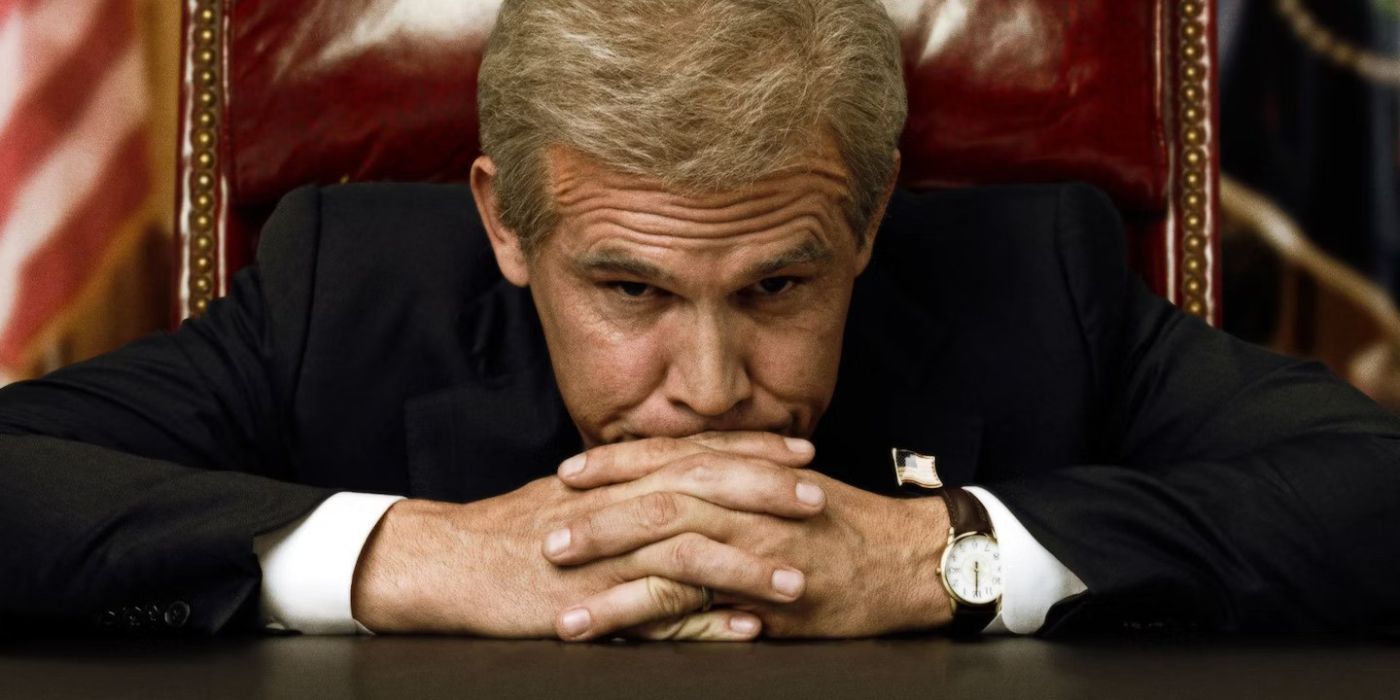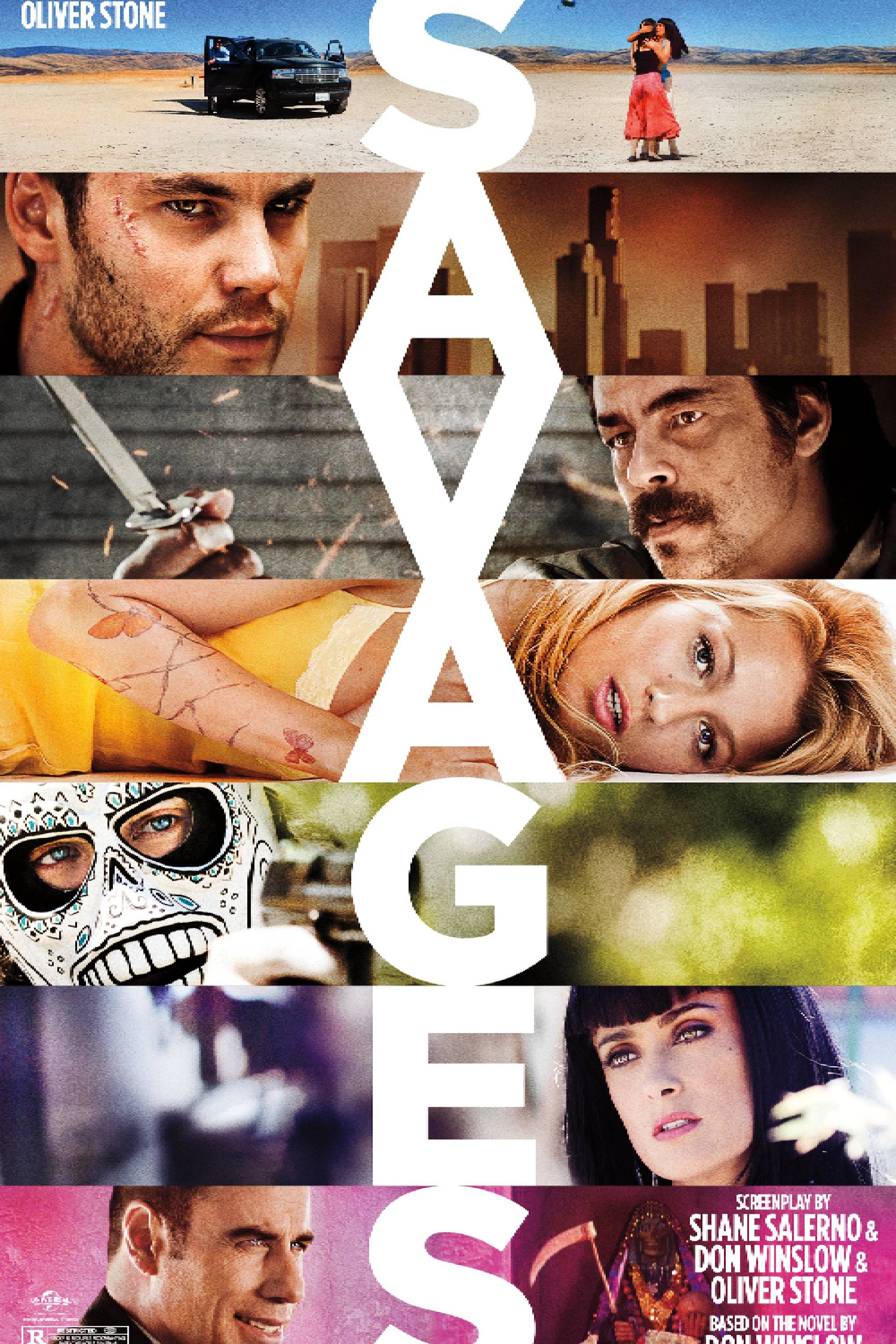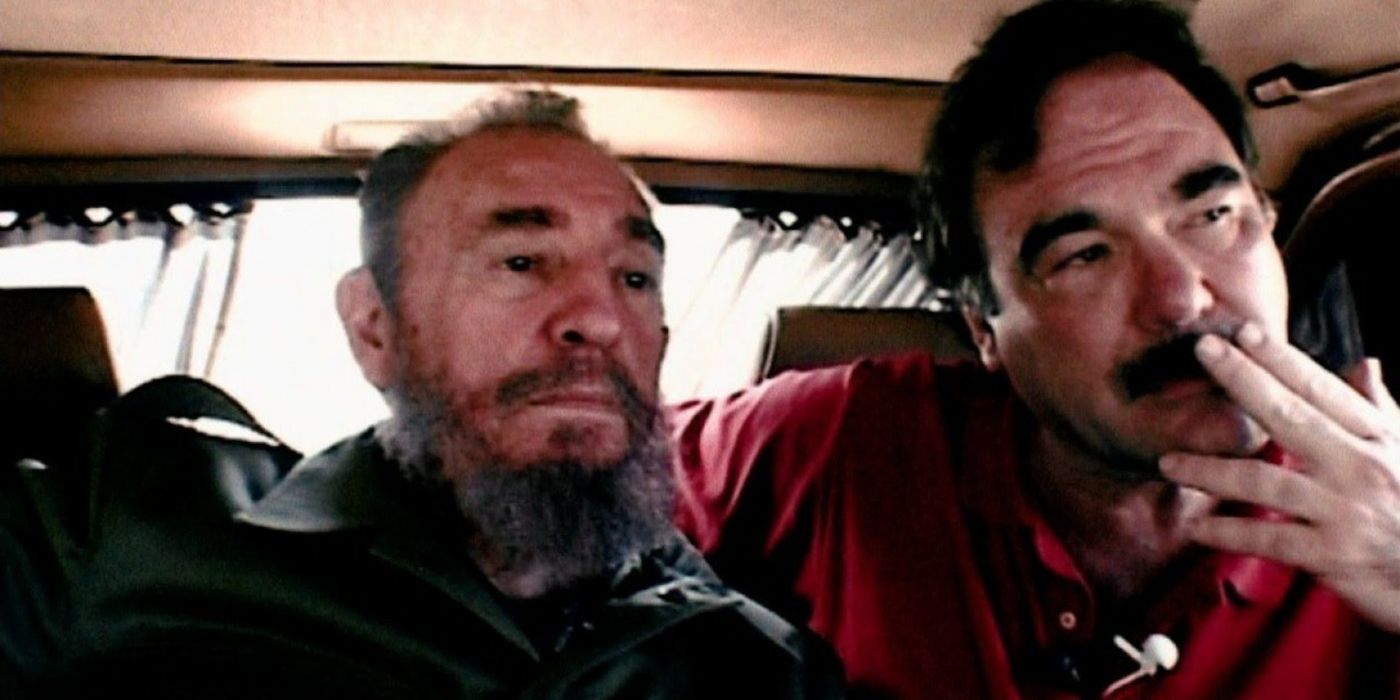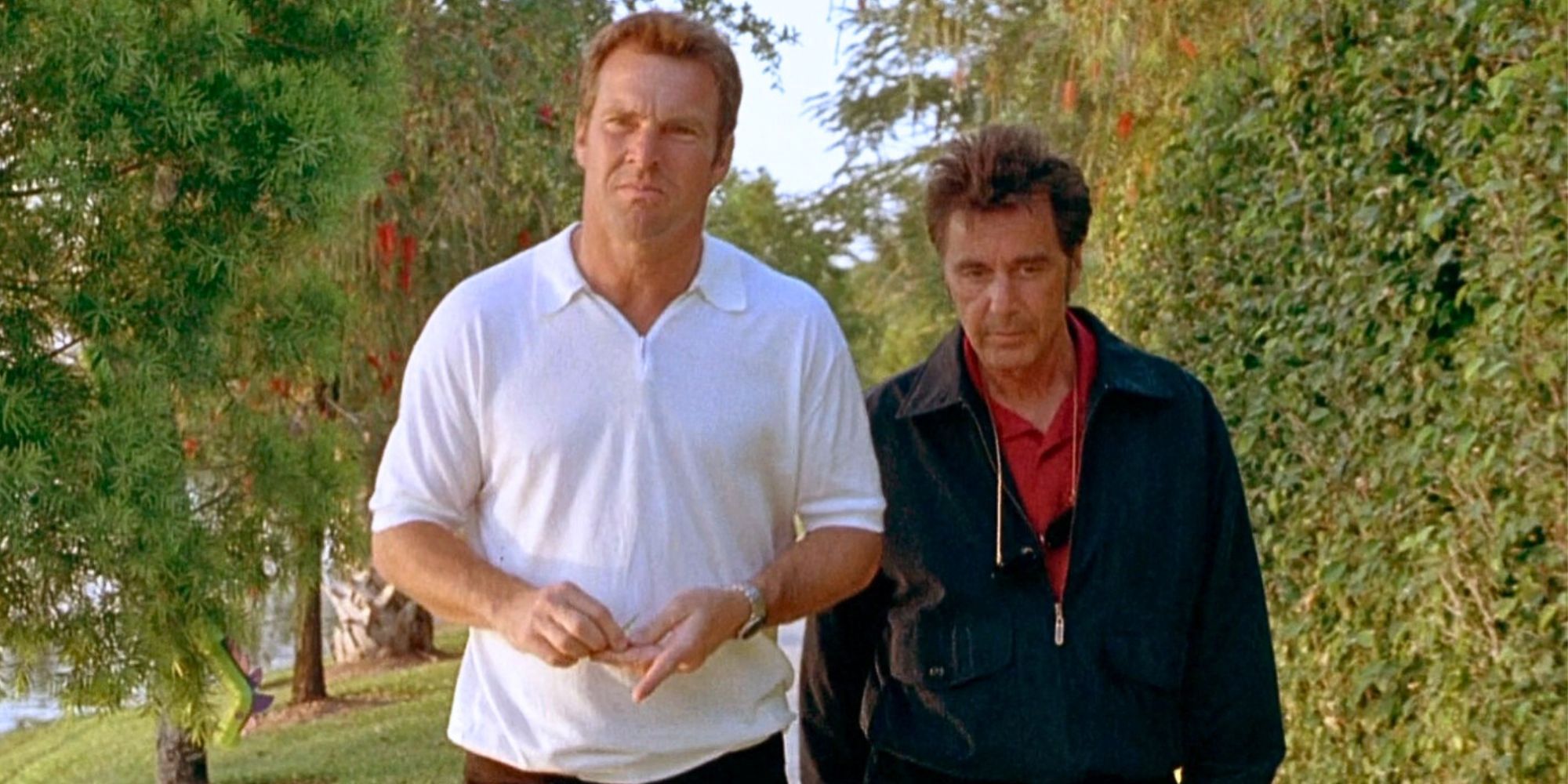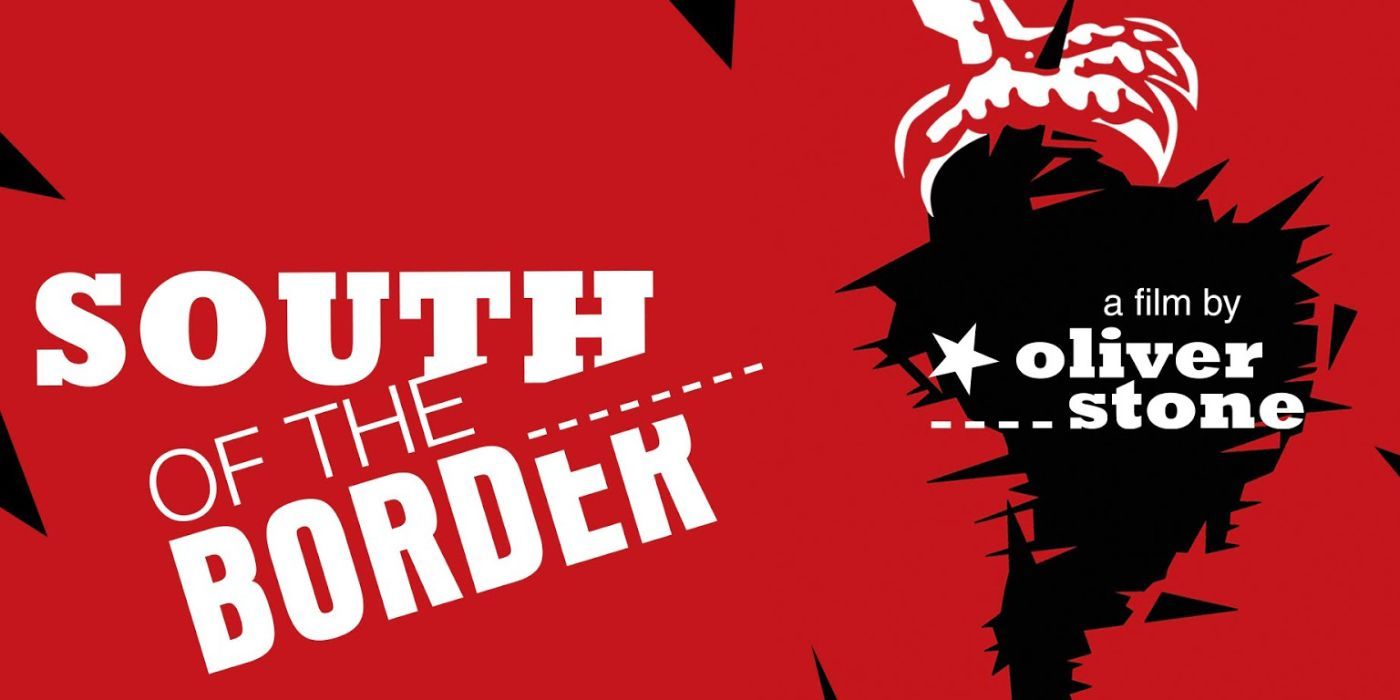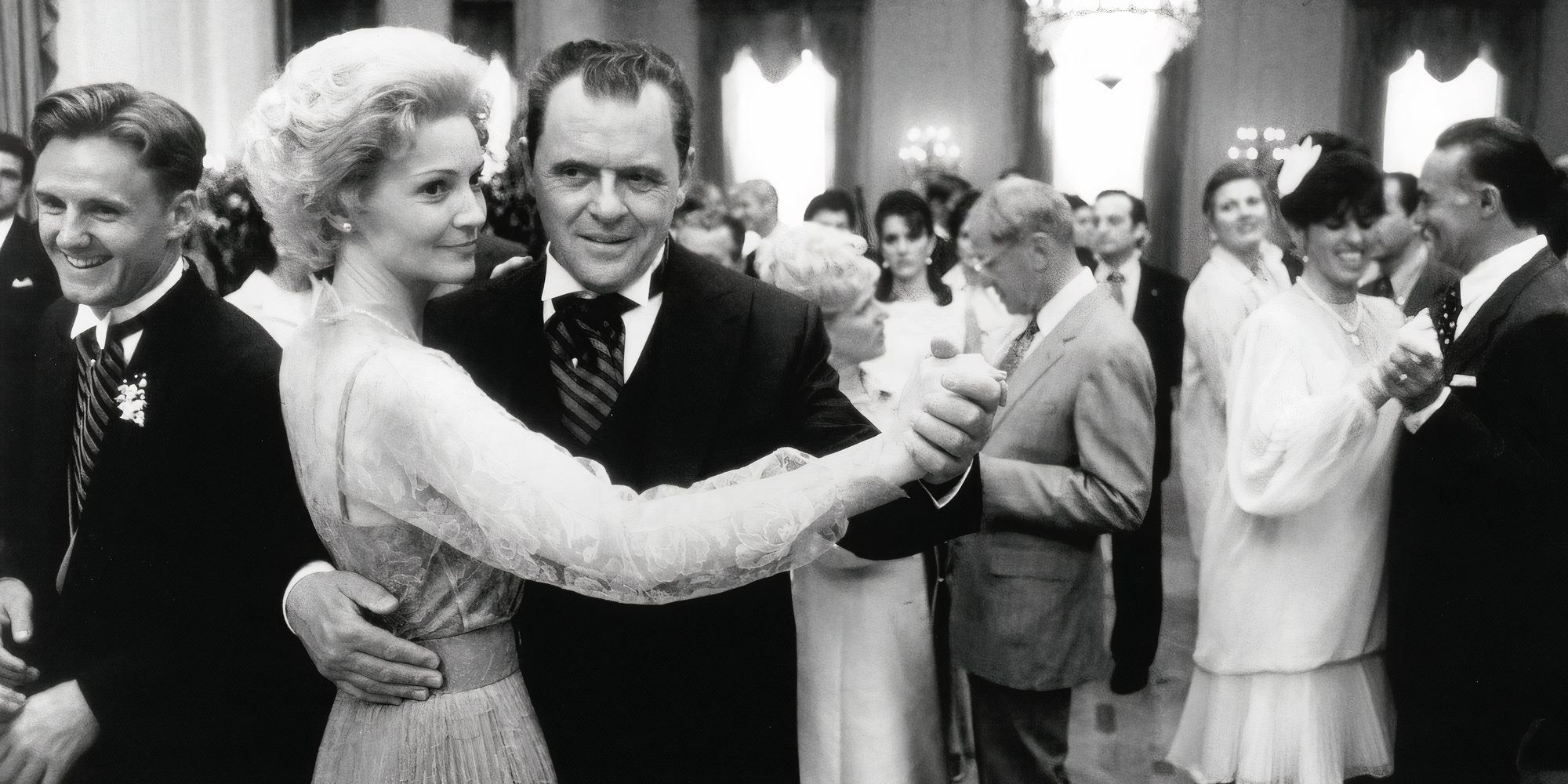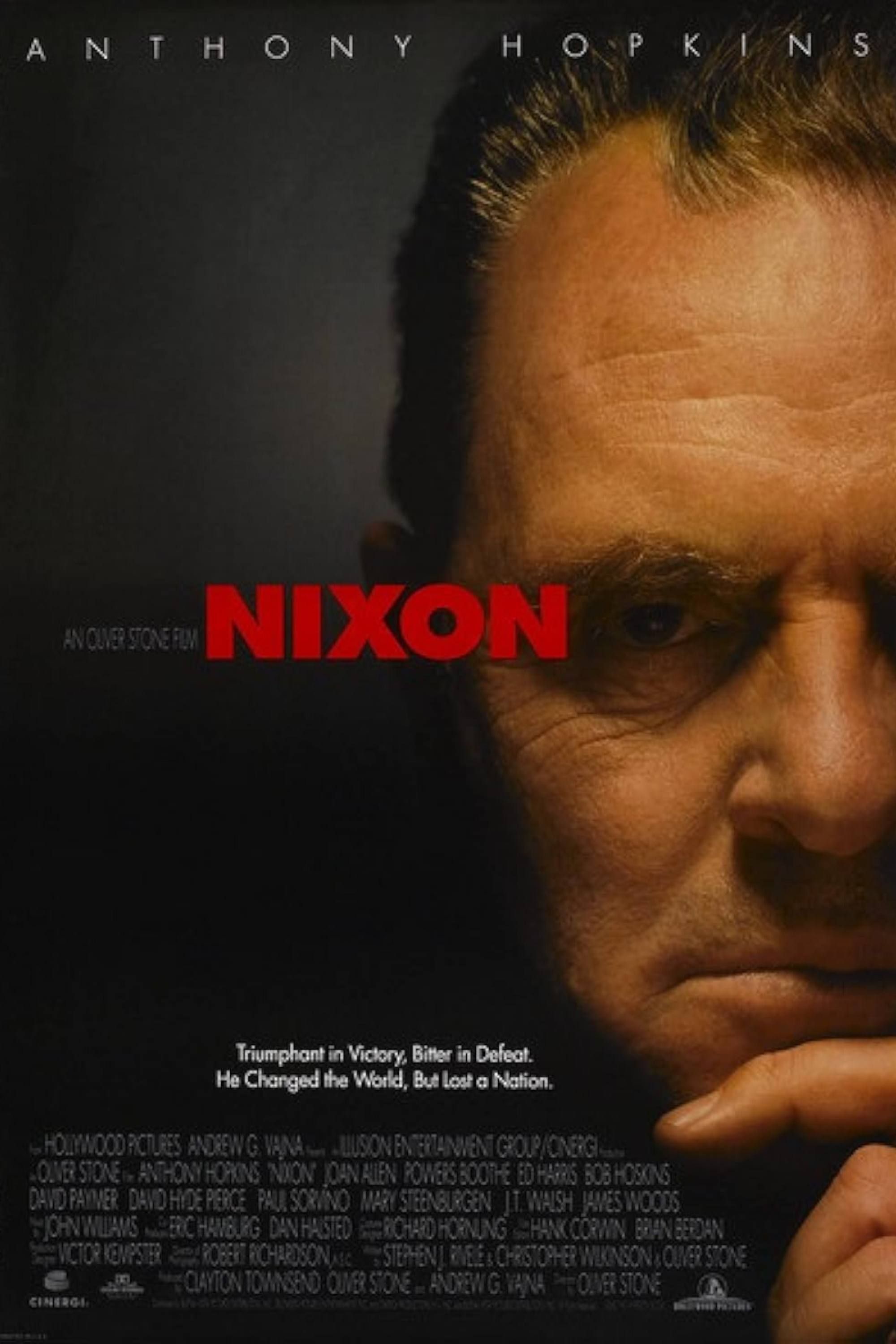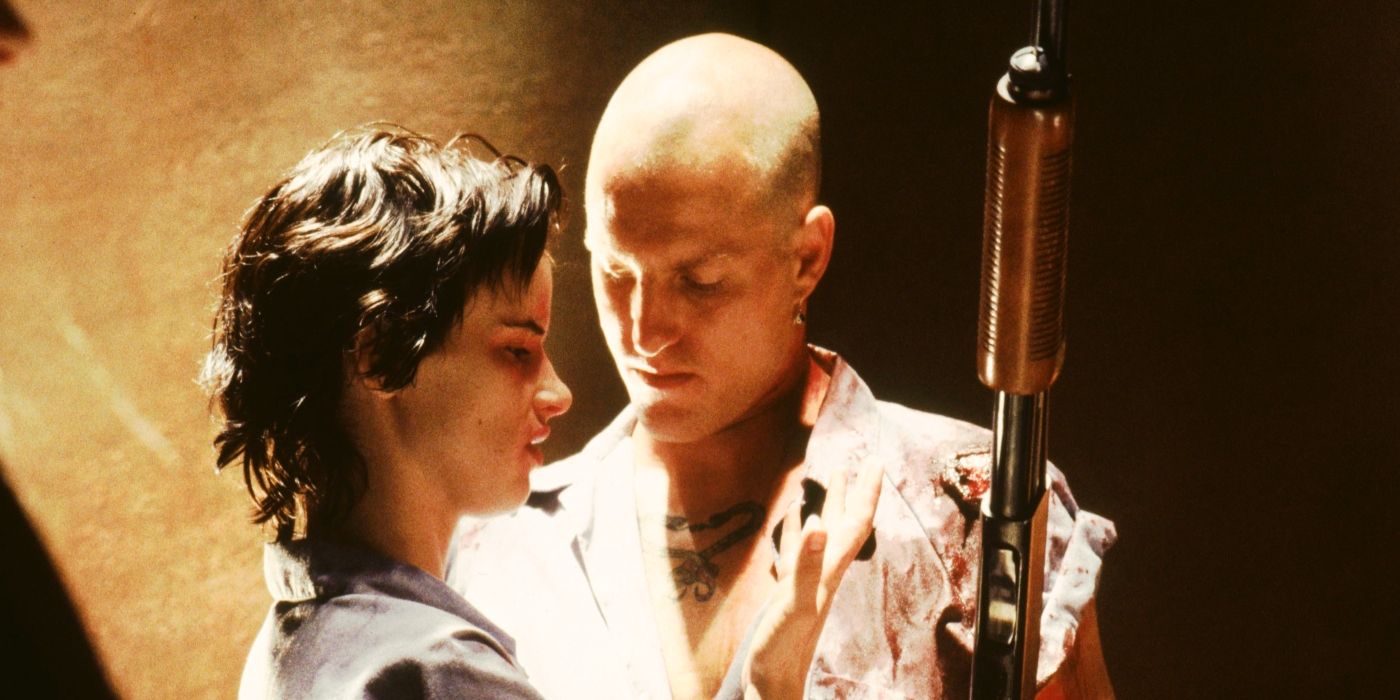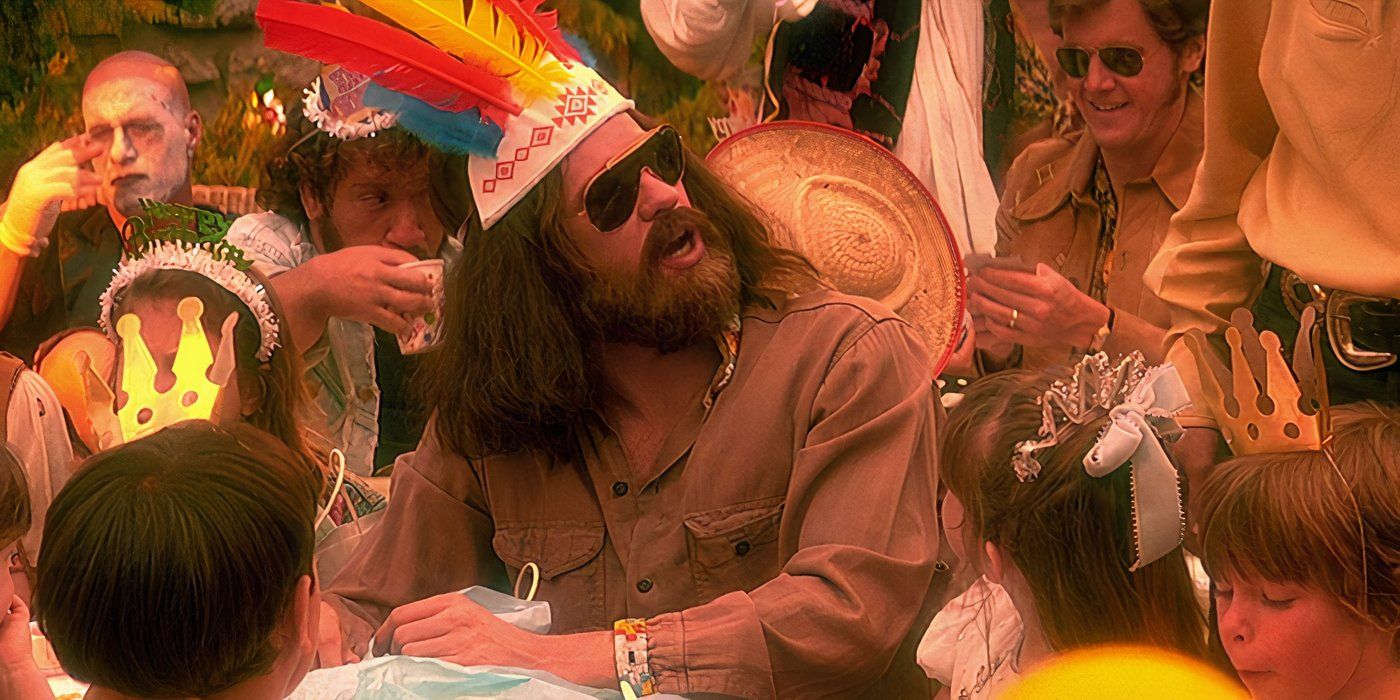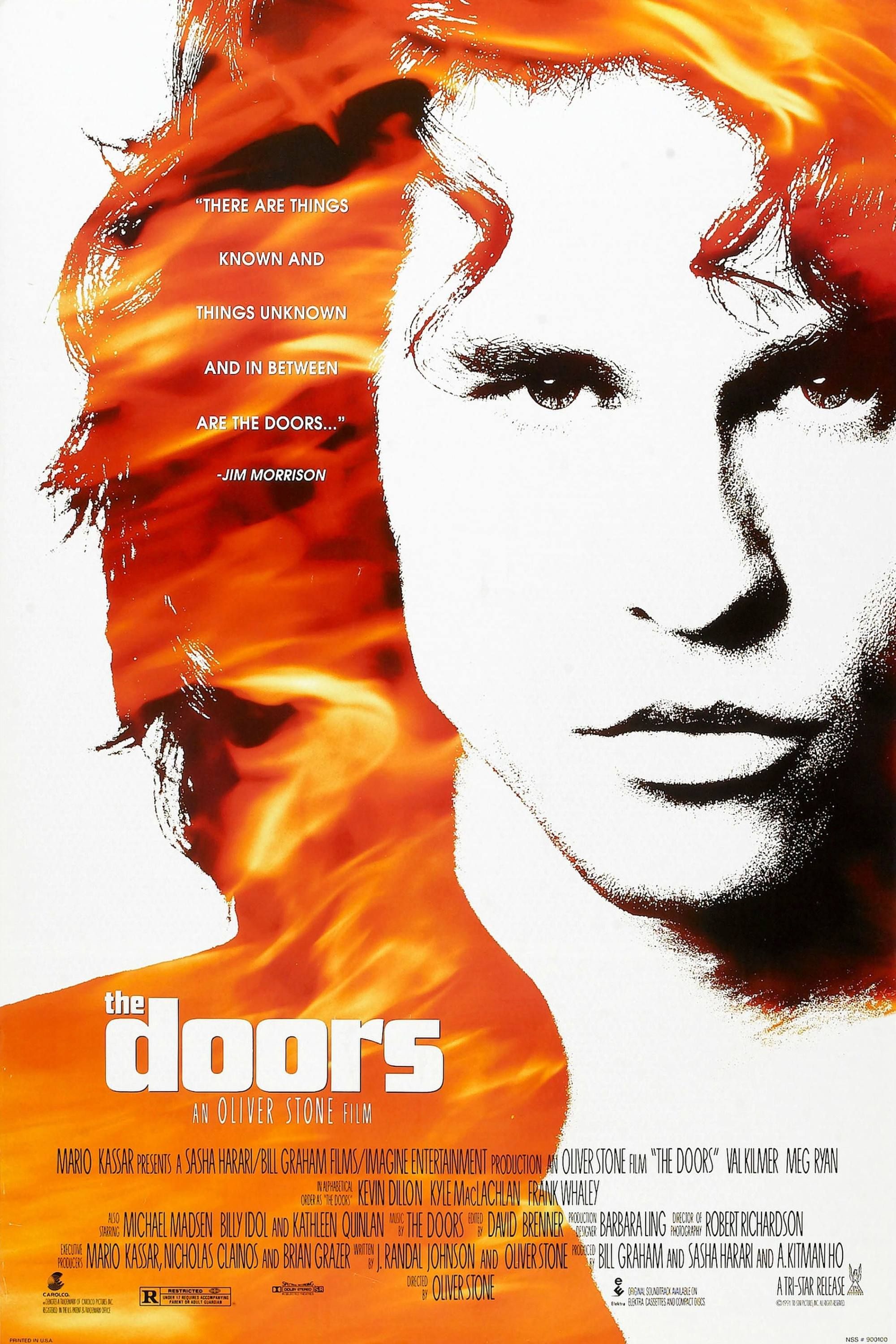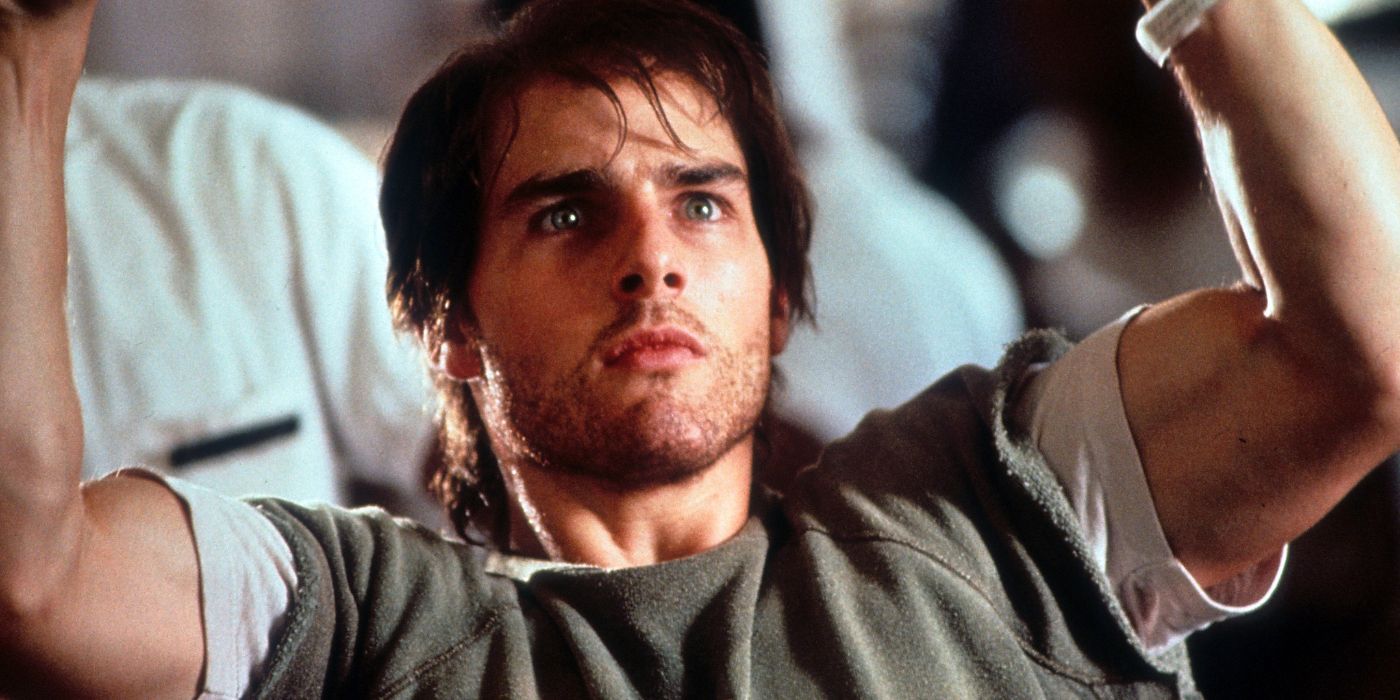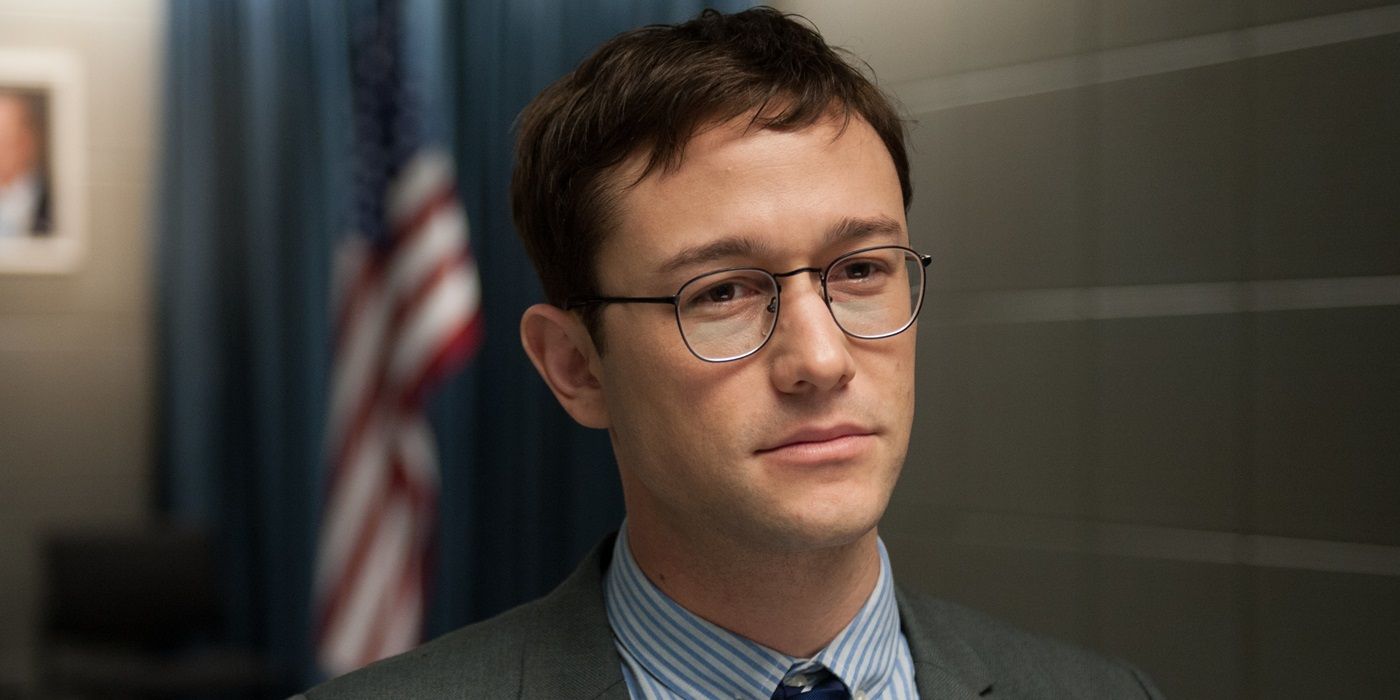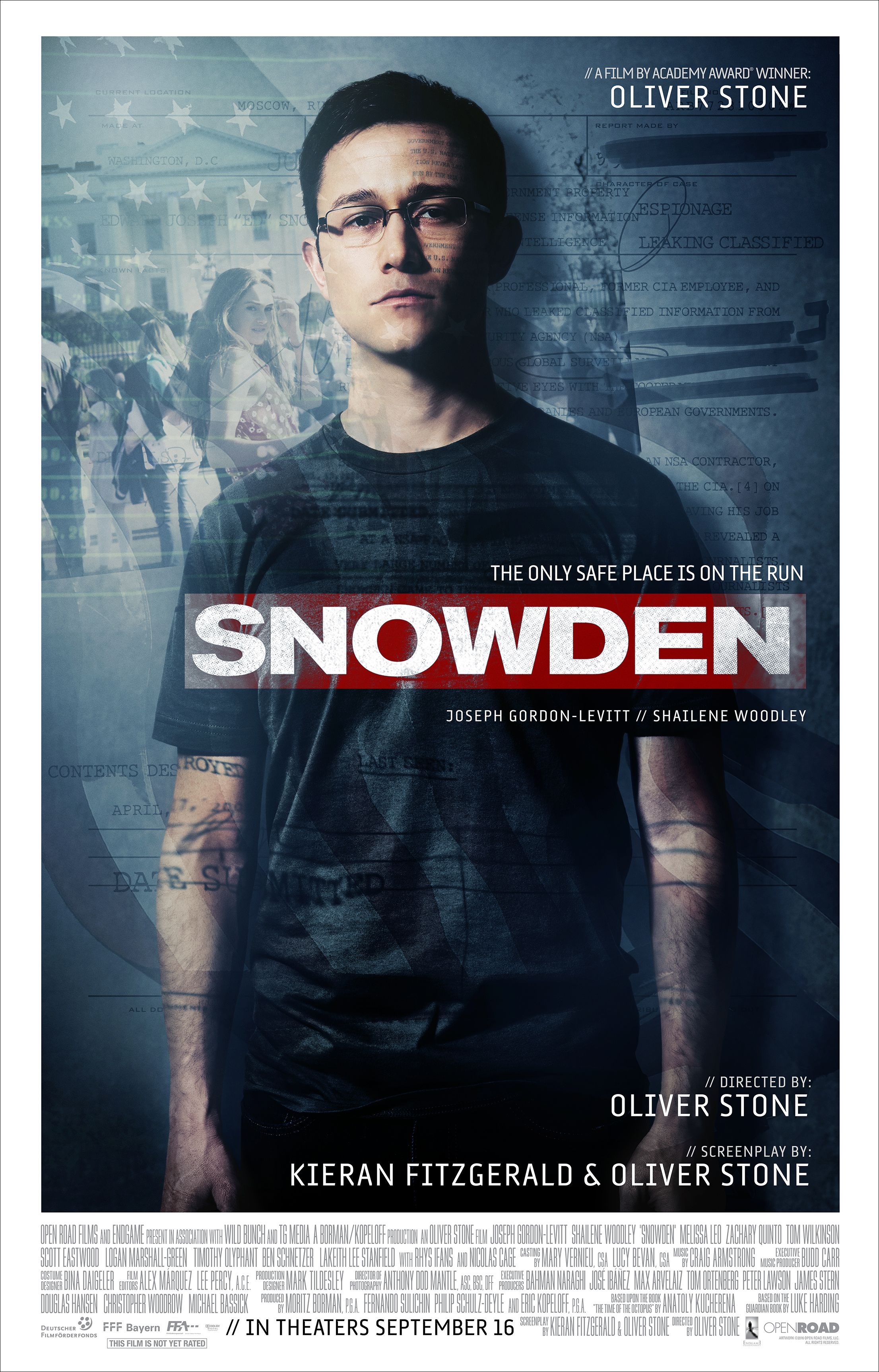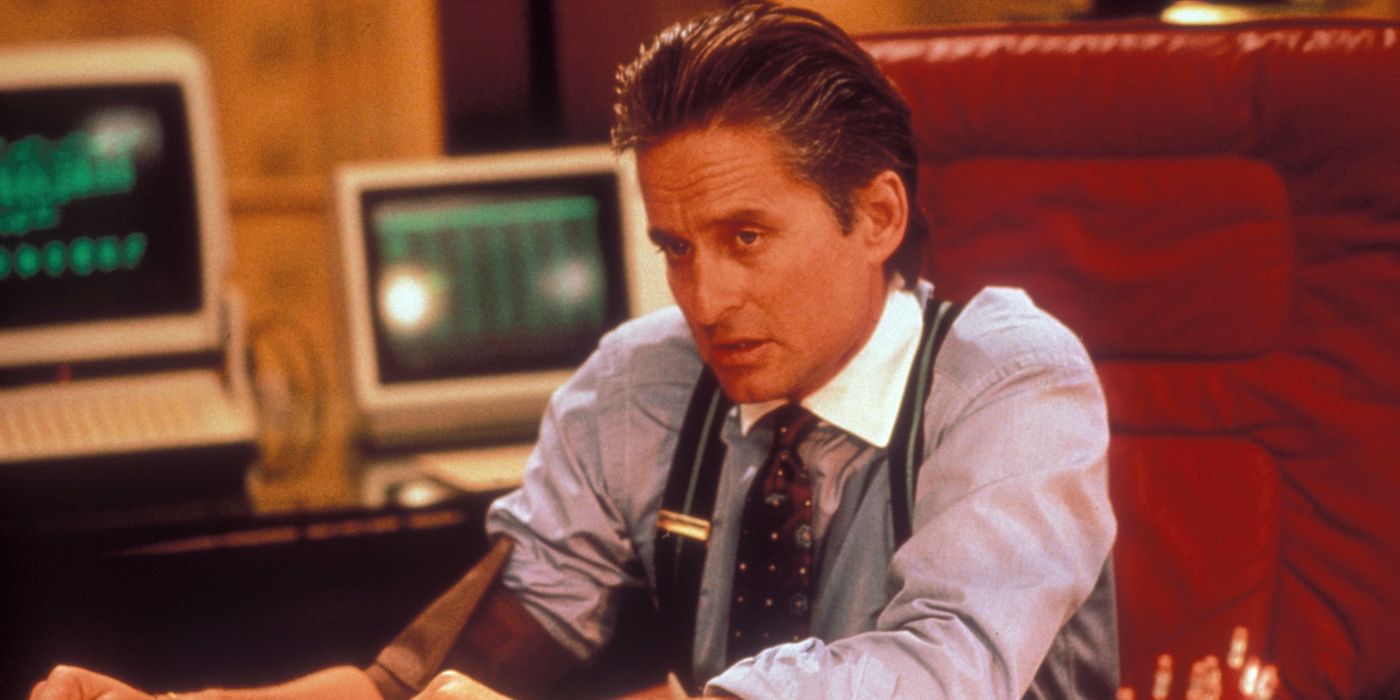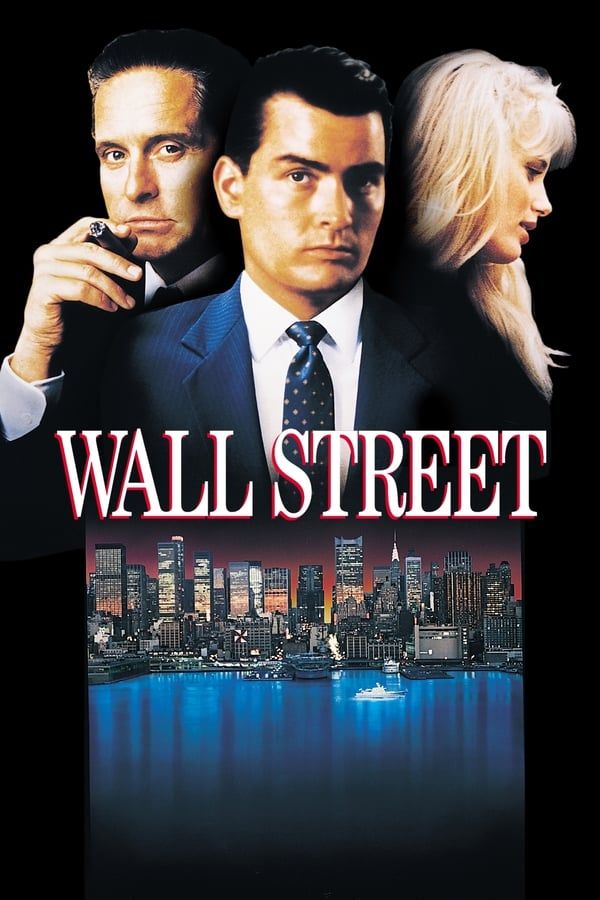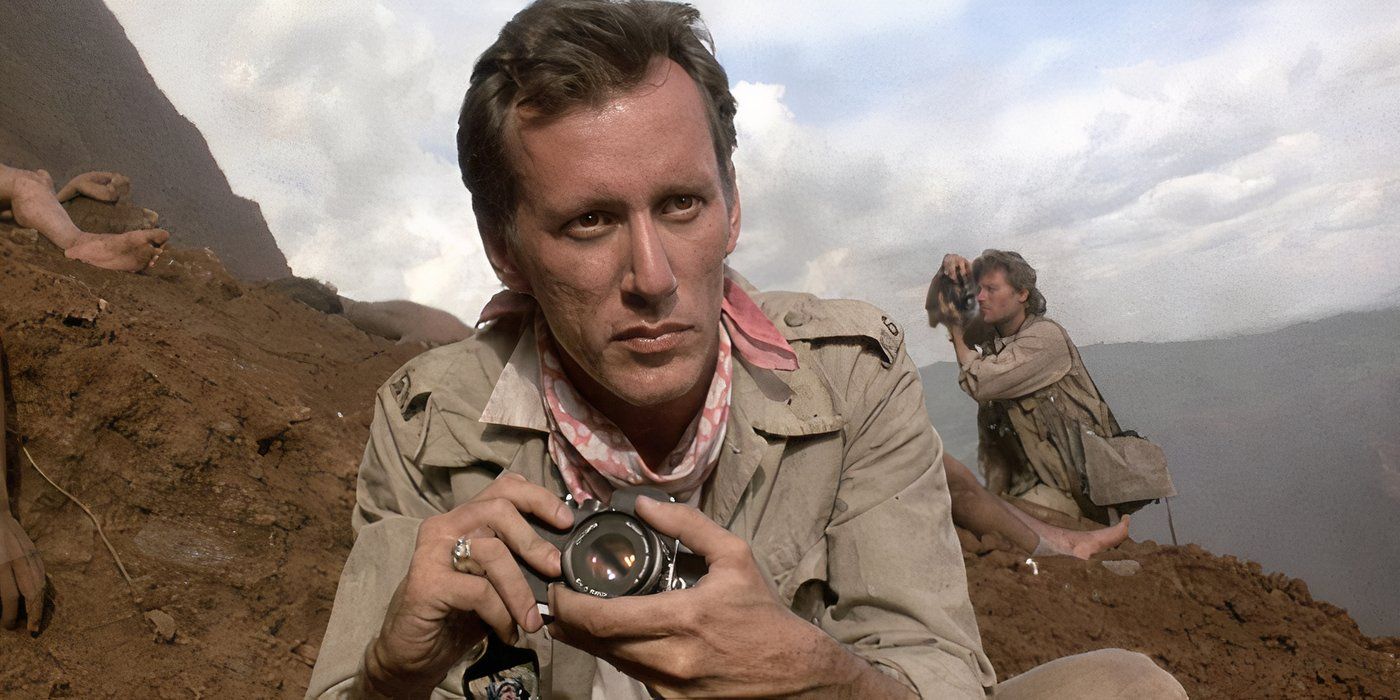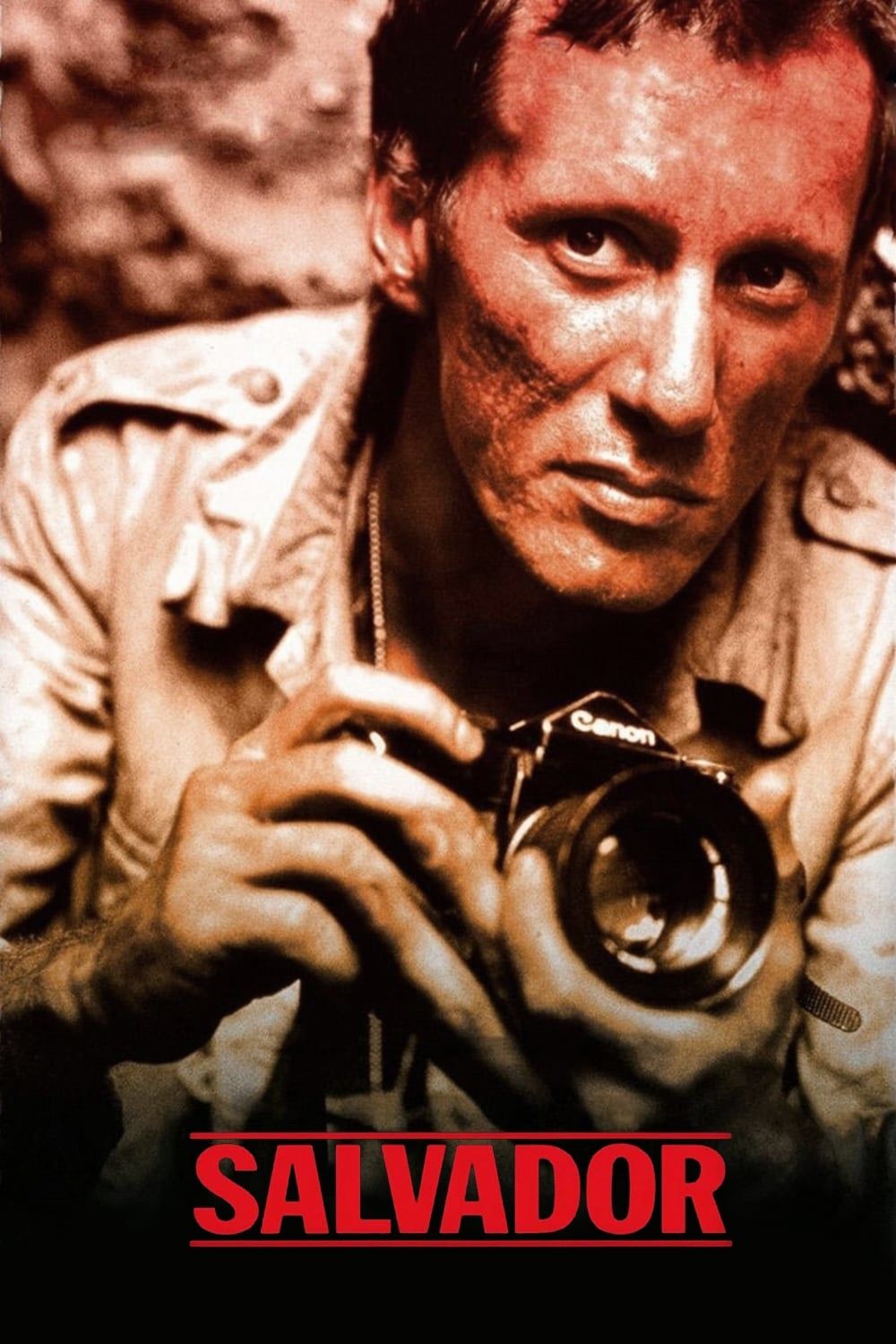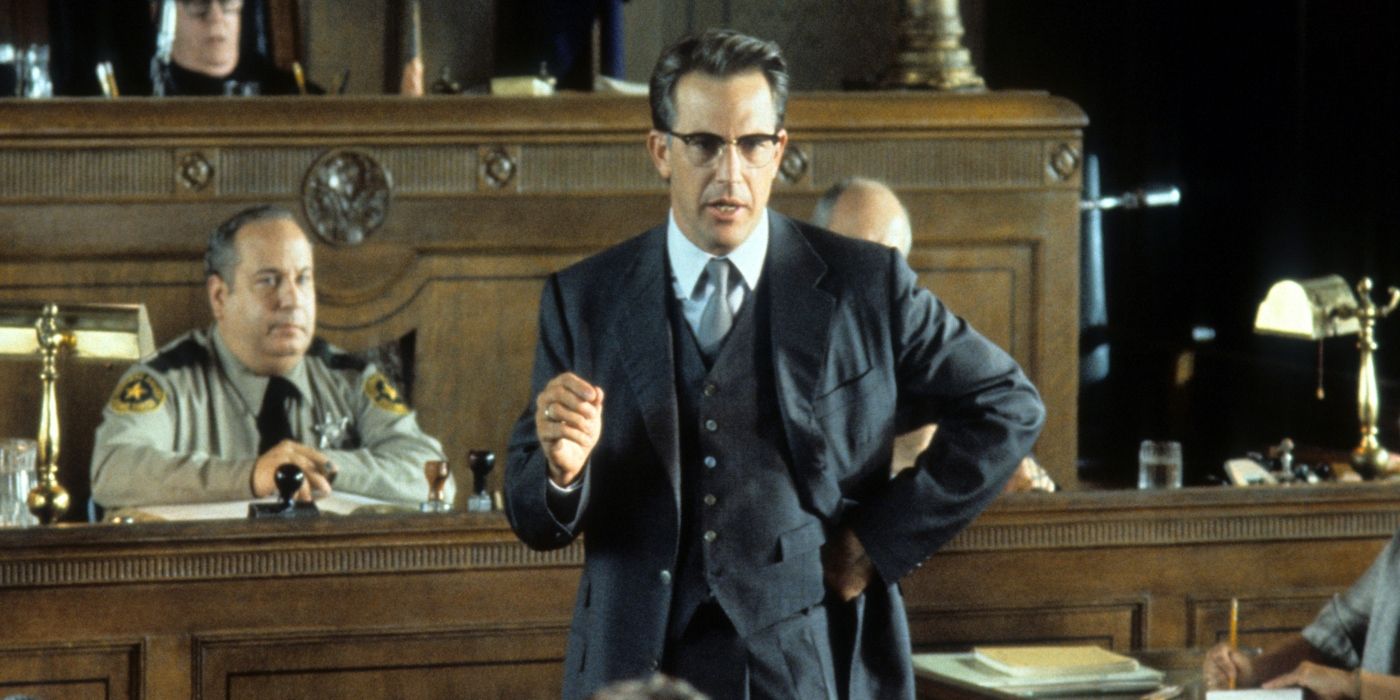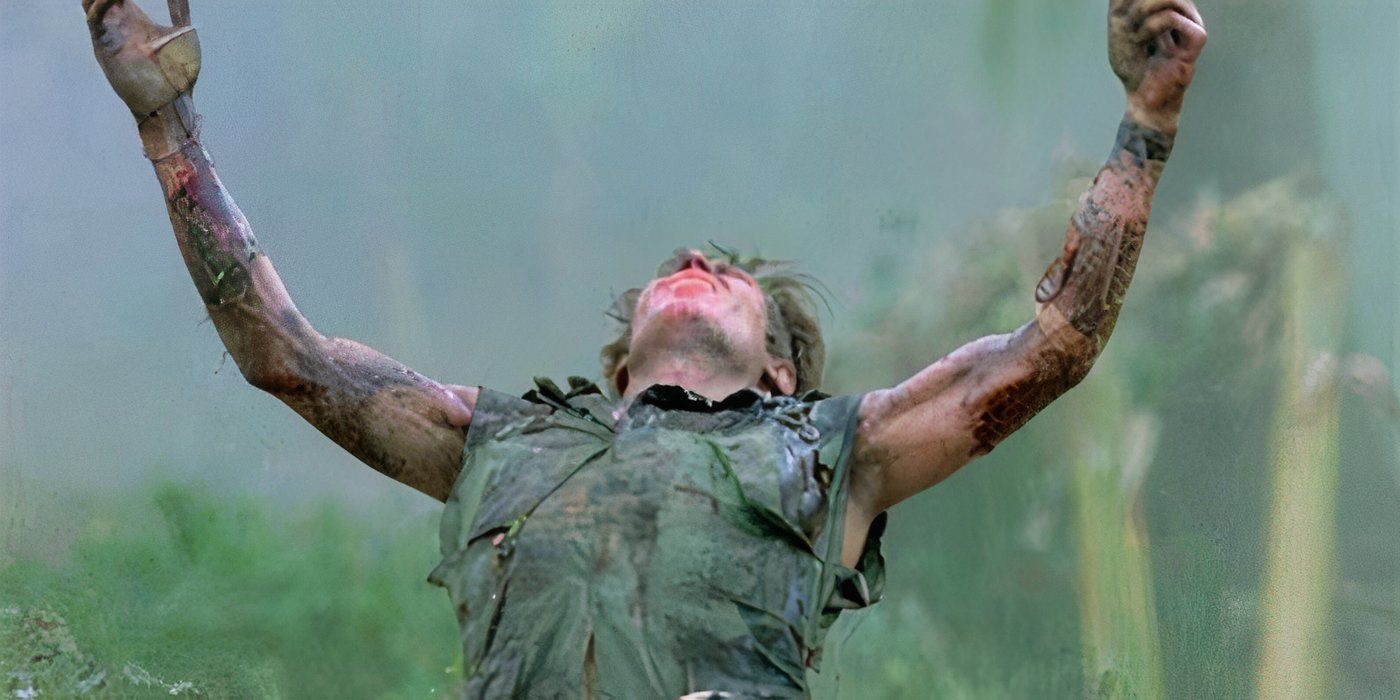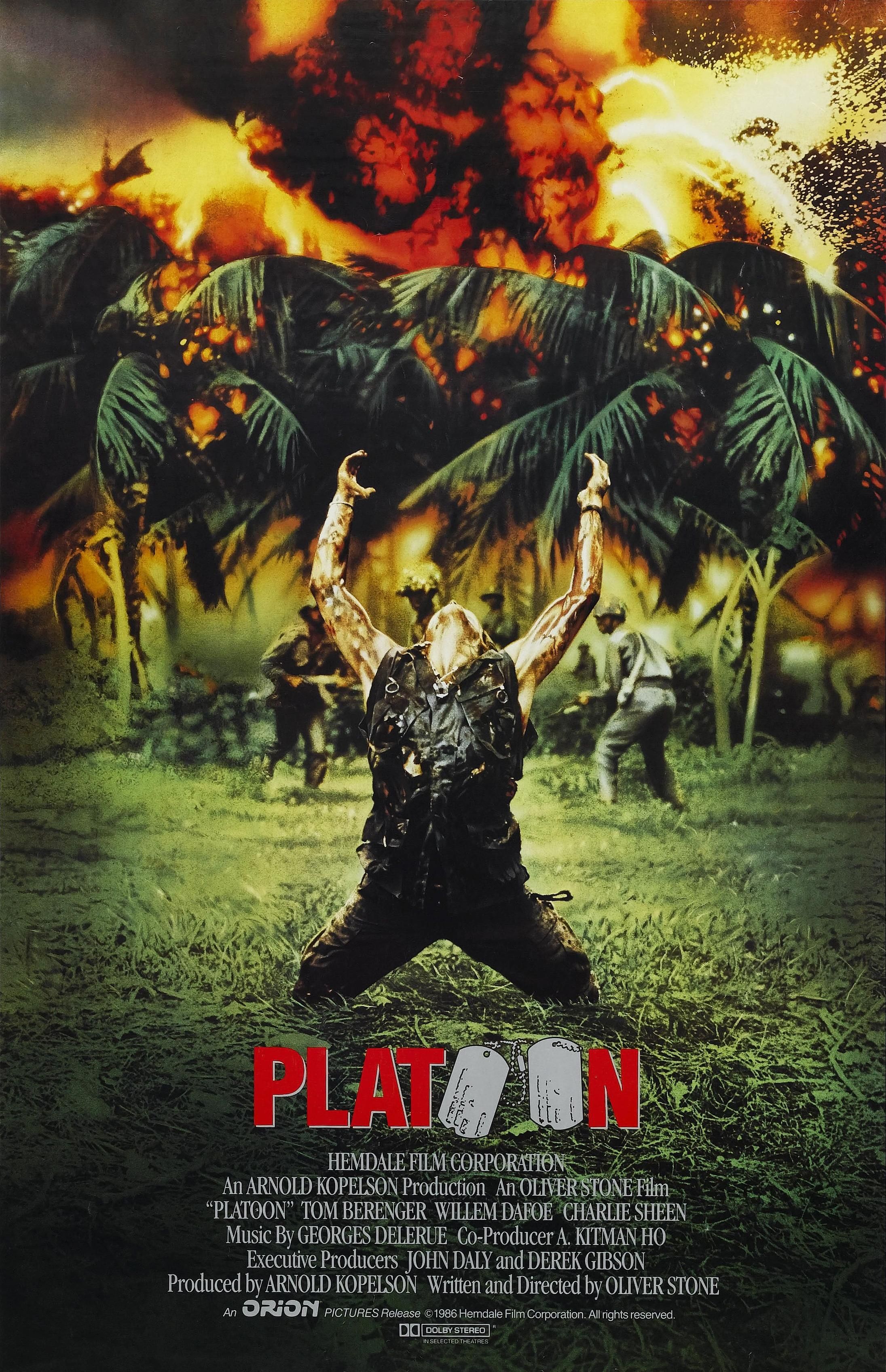15 Best Oliver Stone Movies, Ranked
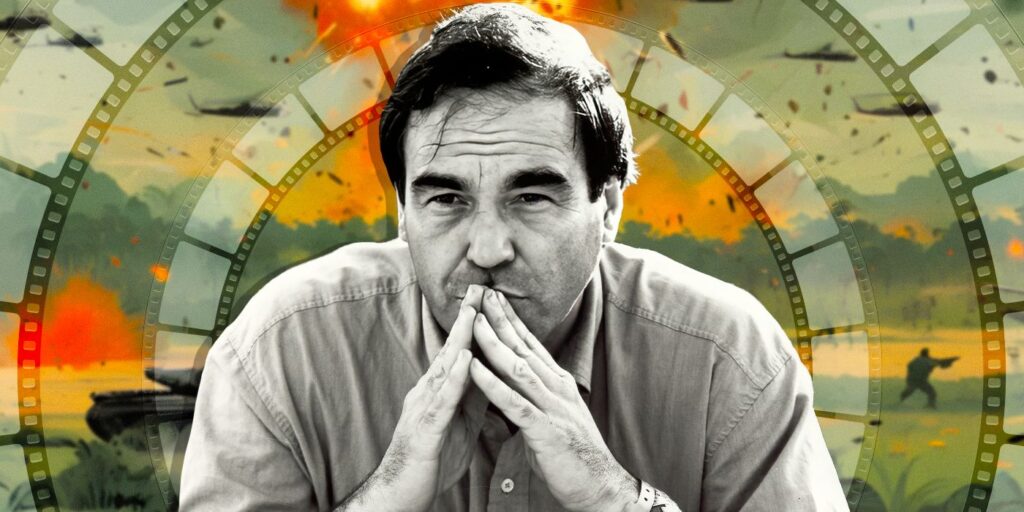
Oliver Stone is the provocative, politically driven filmmaker behind movies like Platoon, Natural Born Killers, and JFK. He frequently blurs the lines between fact and fiction, using his distinct style to dramatize real-life events and figures. Stone’s films frequently address themes of war, corruption, media influence, and power, making him one of the most significant filmmakers of his generation.
Stone’s work is usually bold and intense, whether he’s exploring Vietnam through the eyes of soldiers or taking a critical look at American politics. Not all are successful, of course, but his best movies are both entertaining and provocative, poking at difficult issues. With this in mind, these are Oliver Stone’s best movies ranked based on their place in Stone’s career, legacy, and overall quality. From the battlefield to the boardroom, these projects delve into social tension and moral dilemmas, often holding up a mirror to the darker aspects of American life.
15
‘W.’ (2008)
Starring: Josh Brolin, Elizabeth Banks, James Cromwell, Ellen Burstyn
“I’m the decider, and I decide what is best.” One of several presidential portraits from Stone, W. offers a surprisingly humanized look at the life of George W. Bush (Josh Brolin), tracing his evolution from a rebellious young man struggling with identity to the 43rd President of the United States. In particular, the movie explores Bush’s complicated relationship with his father (James Cromwell) and his supposed sibling rivalry with brother Jeb (Jason Ritter), as well as the events leading up to the fateful, infamous decision to invade Iraq.
Brolin’s uncanny performance anchors the movie. He absolutely nails Bush’s voice and mannerisms. The supporting cast is similarly strong. Cromwell’s imposing, disapproving patriarch looms large, Richard Dreyfuss injects Cheney with oily cunning, and Jeffrey Wright brings internalized conflict as Colin Powell, the lone voice of caution in a hawkish echo chamber. As a whole, W. falls short of its potential, but it boasts enough intrigue to please political junkies.
W.
- Release Date
-
October 17, 2008
- Runtime
-
110
14
‘Savages’ (2012)
Starring: Taylor Kitsch, Blake Lively, Aaron Taylor-Johnson, Benicio Del Toro
“You’re dead from the moment you’re born.” Savages dives into the violent world of Southern California’s drug trade, centering on two best friends, Ben (Aaron Taylor-Johnson) and Chon (Taylor Kitsch), who run a highly lucrative marijuana business. Their idyllic life is shared with Ophelia (Blake Lively), their mutual lover, until it is brutally disrupted by a Mexican cartel looking to expand its territory. When Ophelia is kidnapped, the peaceful Ben and war-hardened Chon are forced into a fight for her survival.
There are stylish visuals here and more than a few juicy plot twists, but Savages ultimately winds up being a bit underwhelming. Stone crafts a few thrilling shootouts and tense stand-offs (as well as some fascinating negotiations), but the tone is uneven and the pacing occasionally lags. That said, the stacked supporting cast deserves some kudos (John Travolta, Benicio Del Toro, and Emile Hirsch all appear), especially Salma Hayek as the cartel matriarch.
13
‘Comandante’ (2003)
Starring: Fidel Castro, Oliver Stone
“If surviving assassination attempts were an Olympic event, I would win the gold medal.” Comandante is a bold (though flawed) documentary featuring Stone in conversation with Fidel Castro. Filmed over three days in Havana, Stone poses candid, often provocative questions about the Cuban dictator’s rule, covering topics like censorship, revolution, human rights, and relations with the United States. Castro, charismatic and commanding, responds with both defiance and surprising humor.
The movie isn’t really serious political journalism. Rather, it’s a cheeky two-hander between dueling egos. While critics debated Comandante‘s sympathetic tone, it’s undeniably intriguing to see Castro in this sort of setting. Some of what he says is certainly striking, like his statement “I am a dictator to myself, I am a slave to my people.” Few filmmakers could get this kind of access to a figure like Castro. If only the director had pushed his conversations a little more.
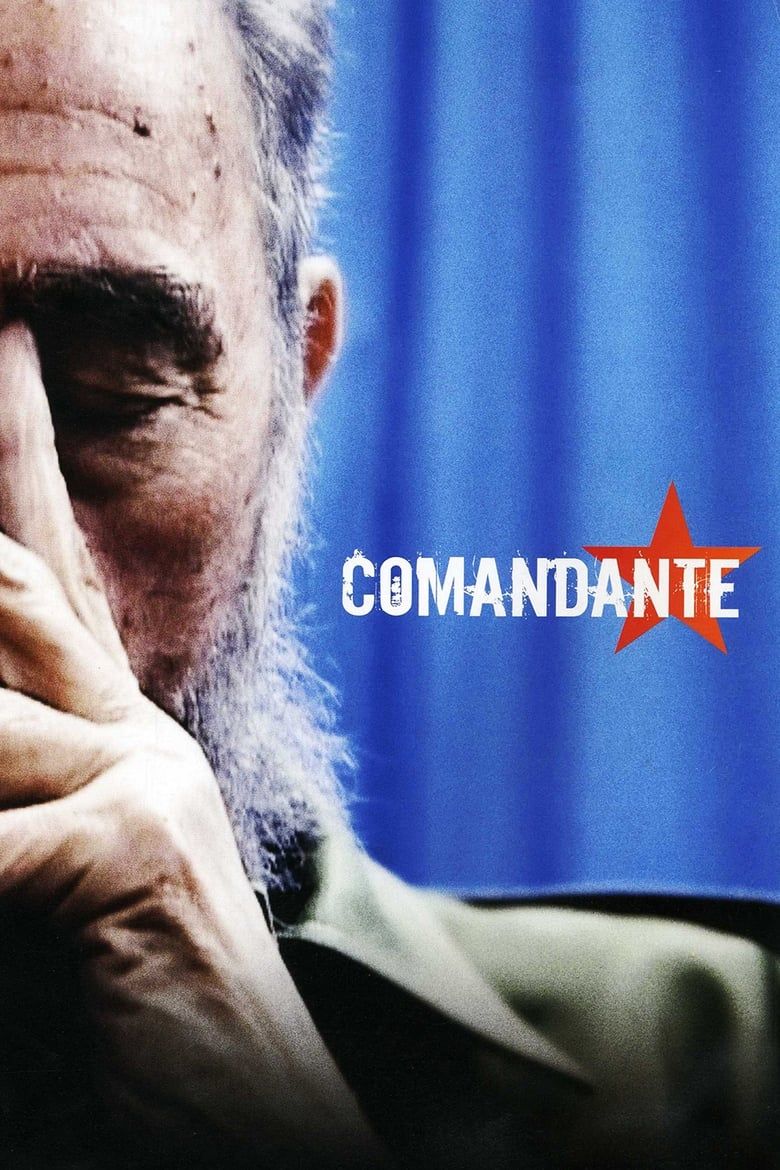
Comandante
- Release Date
-
February 14, 2003
- Runtime
-
99 minutes
Cast
-

-

Juanita Vera
Self – Castro’s Interpreter
-

Fidel Castro
Self (archive footage)
-

Che Guevara
Self (uncredited)
12
‘Any Given Sunday’ (1999)
Starring: Al Pacino, Cameron Diaz, Dennis Quaid, Jamie Foxx
“In either game—life or football—the margin for error is so small.” One of Stone’s more straightforward, crowd-pleasing movies (it grossed $100m), Any Given Sunday follows the Miami Sharks, a struggling team trying to reclaim their former glory, while behind the scenes, aging coach Tony D’Amato (Al Pacino) battles with the young, power-hungry team owner (Cameron Diaz) and a roster full of ego-driven players. As injuries mount and tensions rise, a new, brash quarterback (Jamie Foxx) threatens to upend team dynamics.
While not particularly boundary-pushing, Any Given Sunday is a solid sports flick, blending bone-crunching action with character-driven drama. The performers are all good: Foxx is believable as a rising star under pressure, Pacino brings gravel-throated gravitas to his part, and Dennis Quaid is likable as a veteran player (and almost adopted son to D’Amato) facing personal difficulties. That said, the movie is overlong and would have benefited from some more judicious editing.
11
‘South of the Border’ (2009)
Starring: Hugo Chávez, Oliver Stone, Néstor Kirchner, Lula da Silva
“You’re a troublemaker!” Another documentary, South of the Border is Stone’s attempt to counter mainstream narratives about South America’s political shift in the early 2000s. Journeying through countries like Venezuela, Argentina, Brazil, and Bolivia, the director interviews a range of leftist leaders (and/or dictators), including the outspoken Hugo Chávez, to unpack their anti-imperialist stances and grassroots reforms.
The movie is never dull but, once again, Stone is too soft and sympathetic with his subjects, shying away from a lot of potentially hard-hitting questions. The candid conversations and on-the-ground footage provide a thought-provoking perspective on these events, and Stone gets many powerful, influential figures to appear on-screen, but South of the Border is undeniably biased and polemical, undermining some of its impact. Still, as a passionate manifesto, it’s well done. Plus, some of what the South American leaders say is intriguing in that it provides an insight into how they think—or attempt to spin things.
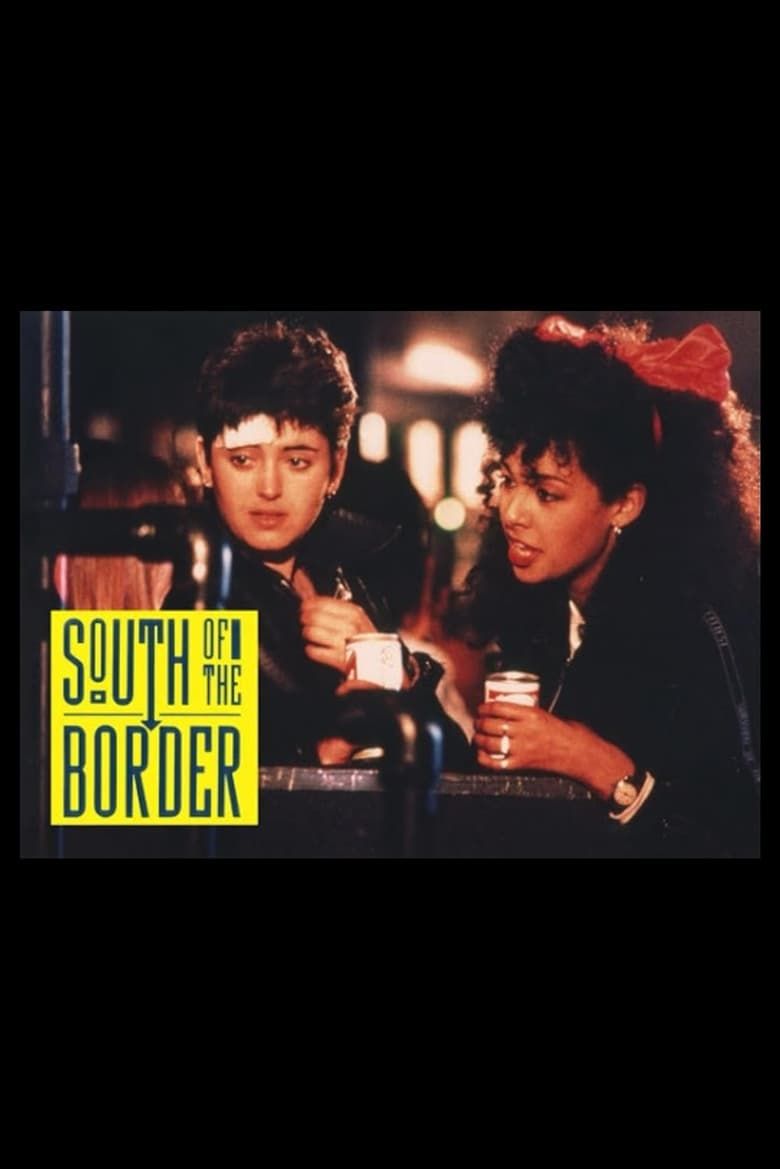
- Release Date
-
1988 – 1989
- Network
-
BBC One
-

Allister Bain
Pastor George
-

-
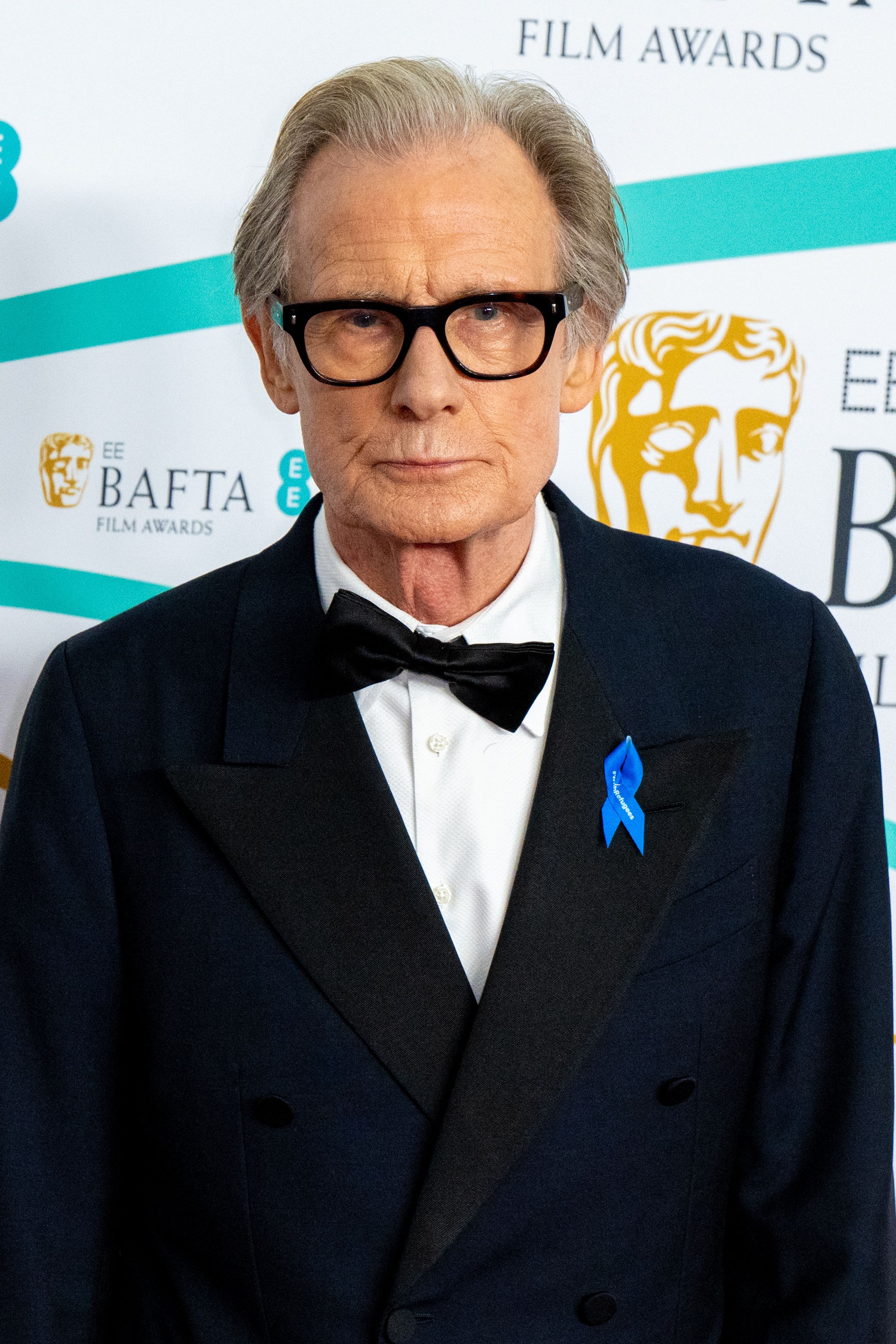
-

Buki Armstrong
Pearl Parker
10
‘Nixon’ (1995)
Starring Anthony Hopkins, Joan Allen, Ed Harris, Powers Boothe
“I gave them a sword. They stuck it in, and they twisted it with relish.” Anthony Hopkins plays America’s 37th President in this biopic, focusing on the Watergate scandal and its aftermath. The plot only covers the two years before Richard Nixon‘s resignation but still manages to dive deep into his psyche, presenting a complex and layered picture of the man. In particular, Stone examines Nixon’s internal struggles, insecurities, and perception of the world as an unforgiving battleground.
In this regard, the movie is a lot like Adam McKay‘s Vice in that it critiques its subjects heavily without demonizing them or reducing them to a cartoon. Much of the movie’s success is thanks to the mighty Anthony Hopkins. Here, he’s fittingly weary and paranoid, clearly giving his allin the performance. Taken together, Nixon becomes not just a character but a statement of American society as a whole in the early ’70s. As Nixon says about the public in one scene: “When they look at me, they see themselves.”
9
‘Natural Born Killers’ (1994)
Starring Woody Harrelson, Juliette Lewis, Robert Downey Jr., Tommy Lee Jones
“You’ve seen the future; now watch it happen.” Penned by Quentin Tarantino but filtered through Stone’s visual style and sensibilities, this dark satire follows Mickey (Woody Harrelson) and Mallory Knox (Juliette Lewis), a young couple who embark on a killing spree across America. They become media sensations in the process, with the movie using them to critique the glamorization of criminals and the sensationalism of violence in the media.
This is, far and away, Stone’s most aesthetically inventive movie. Natural Born Killers is jam-packed with zany camera angles, color-tinted shots, rapid cutaways, and even an animated sequence. It makes for a punchy and visceral viewing experience that repelled many viewers but earned a devoted cult following. Natural Born Killers was controversial on release, with some critics accusing it of glorifying the very violence it claimed to disavow, but it received generally favorable reviews and remains one of the most singular movies of the 1990s.
8
‘The Doors’ (1991)
Starring Val Kilmer, Meg Ryan, Kyle MacLachlan, Frank Whaley
“This is the end, beautiful friend.” Another biopic, The Doors chronicles the rise and fall of Jim Morrison (Val Kilmer) and his iconic rock band. The film explores Morrison’s transformation from a shy college student into a charismatic but self-destructive rock star. At the same time, Stone delves into the countercultural movements of the 1960s and 1970s, portraying Morrison as both a symbol of rebellion and a tragic figure consumed by his demons.
Some commentators quibbled with many of the historical details, with The Doors keyboardist Ray Manzarek, in particular, disputing a lot of events. Nevertheless, Kilmer’s performance was generally praised; he summons up a dark and magnetic presence here, more than rising to the occasion. Stone assists him with a suitably psychedelic cinematic style, nicely capturing the vibe of the era. Fans of classic rock should find a lot to enjoy with this one, though The Doors will be a bit niche for other viewers.
7
‘Born on the Fourth of July’ (1989)
Starring Tom Cruise, Willem Dafoe, Kyra Sedgwick, Raymond J. Barry
“Don’t hate the soldiers; hate the war.” Born on the Fourth of July is based on the true story of Ron Kovic (Tom Cruise), a paralyzed Vietnam vet who becomes an outspoken anti-war activist. The film traces Kovic’s transformation from a young man eager to serve his country to a disillusioned soldier grappling with the horrors of war and the betrayal he feels from his government.
Himself a Vietnam War veteran, Stone brings a personal perspective to the film, highlighting the trauma of soldiers who were essentially abandoned after the war. The subject matter is heavy, but Cruise carries it well with his unconventional and electrifying performance, which earned him his first Oscar nomination for Best Actor. Stone won the Best Director Award, though Driving Miss Daisy claimed Best Picture. The movie’s message clearly resonated with the public in the late 1980s as it was a huge commercial success, grossing $161 million against a budget of $17.8m.
6
‘Talk Radio’ (1988)
Starring Eric Bogosian, Alec Baldwin, Ellen Greene, John C. McGinley
“The whole world’s a ghetto.” This intense, claustrophobic drama centers on Barry Champlain (Eric Bogosian), a controversial radio host who attracts both devoted fans and dangerous enemies with his provocative on-air persona. As Barry’s show becomes increasingly popular, the threats against him grow, leading to a tense confrontation on the night of his biggest broadcast. In a similar vein to Natural Born Killers, Talk Radio is a critique of the media’s exploitation of anger, fear, and controversy for ratings.
The movie was adapted from a play co-written by star Bogosian, itself loosely inspired by real events. Bogosian is terrific in the role, helped by a strong supporting cast. Finally, Stone’s slick, confident direction ties it all together. Talk Radio is the kind of movie that could easily have fallen apart, but Stone succeeds in sustaining the tension for most of the runtime, even if a few scenes begin to drag a little.
5
‘Snowden’ (2016)
Starring Joseph Gordon-Levitt, Shailene Woodley, Zachary Quinto, Nicolas Cage
“The truth is coming, and it can’t be stopped.” Joseph Gordon-Levitt leads this biographical thriller as Edward Snowden, the former NSA contractor who leaked classified information about the U.S. government’s mass surveillance programs. Once again, Stone focuses on a controversial and explosive figure, both revered and reviled by segments of the public.
Stylistically, Snowden is more restrained and conventional than most of Stone’s movies, avoiding flashy visuals or aesthetic gimmicks. Instead, the emphasis is very much on the character study and the protagonist’s emotions. This approach is mostly handled well, but it has the downside of making the story a little less tense and dramatic than it could have been. Perhaps for this reason, Snowden received mixed reviews, although most critics praised Gordon-Levitt’s performance. Snowden remains thematically relevant, as cyber-surveillance and government secrecy persist as a thorny issue the world over. AI will only add further fuel to this fire.
4
‘Wall Street’ (1987)
Starring Michael Douglas, Charlie Sheen, Daryl Hannah, Martin Sheen
“Greed, for lack of a better word, is good.” Wall Street is the archetypal drama about corporate greed and financial corruption. The story follows Bud Fox (Charlie Sheen), a young stockbroker who becomes involved with the ruthless corporate raider Gordon Gekko (Michael Douglas). As Bud rises in the ranks of Wall Street, he must choose between his ambition and his integrity.
Looking back, Wall Street may seem a little melodramatic and formulaic, and the shots of giant cellphones are very dated, but it’s a classic because of the way it skewers ’80s excess and the cutthroat nature of the finance world. Douglas delivers an iconic performance as Gekko, whose famous “Greed is good” speech encapsulates the ethos of the ’80s, nabbing him the Best Actor Oscar. Stone’s storytelling is also assured here, using flat lenses, close-ups, and handheld shots to create a constant sense of movement and keep the pace energetic and engaging.
3
‘Salvador’ (1986)
Starring James Woods, Jim Belushi, Michael Murphy, John Savage
“This is a war zone, baby.” Salvador is a political thriller about journalist Richard Boyle (James Woods), who travels to El Salvador during the country’s civil war. It’s a harrowing depiction of the violence and human rights abuses that occurred during the conflict, with Boyle caught in the middle of the chaos. Woods gives a raw and intense performance as the cynical journalist who becomes increasingly disillusioned with both the U.S. government’s involvement in the war and his role as a witness to the atrocities.
Salvador draws a connection between the devastating events in Central America and the obliviousness of much of the rest of the world. The fact that it was co-written by Boyle himself adds to the impact. Though occasionally a touch heavy-handed, Salvador is a strong and compelling political drama, mining real events for narrative tension. The action scenes are masterfully executed, and the film as a whole becomes surprisingly poignant.
2
‘JFK’ (1991)
Starring Kevin Costner, Tommy Lee Jones, Gary Oldman, Joe Pesci
“The truth is the most important value we have.” Another political thriller based on real events, JFK explores the assassination of President John F. Kennedy and the conspiracy theories surrounding his death. The main character is New Orleans District Attorney Jim Garrison (Kevin Costner), who investigates the possibility of a cover-up, piecing together evidence that points to a larger conspiracy involving multiple government agencies. Costner is joined by other heavy hitters like Kevin Bacon, Tommy Lee Jones, and Gary Oldman.
Stone presents Garrison’s investigation through a non-linear narrative and a documentary style, blending fact and speculation in a way that leaves audiences questioning what really happened. Consequently, JFK is both ambitious and controversial, sparking debate over its historical accuracy. Some viewers will find some of the theorizing a little too speculative, while others will be spellbound by it. Either way, JFK is a sweeping, well-acted drama about an infamous moment in American history, as well as the political turbulence of the 1960s more broadly.
1
‘Platoon’ (1986)
Starring Charlie Sheen, Tom Berenger, Willem Dafoe, Forest Whitaker
“I am reality.” Platoon is a gritty and brutal depiction of the Vietnam War told from the perspective of Chris Taylor (Charlie Sheen), a young soldier who experiences the horrors of combat firsthand. The film explores the moral ambiguity of war, as Taylor becomes caught between two sergeants—one ruthless (Tom Berenger) and the other compassionate and moral (Willem Dafoe). As with Born on the Fourth of July, the movie is informed by Stone’s experiences as a soldier in Vietnam, giving it a lot of authenticity.
Consequently, Platoon ranks among the stronger Vietnam War movies. While not quite as grand as Apocalypse Now or as hard-hitting as Full Metal Jacket, its defenders argue that it trumps both in terms of accuracy. Most of all, Stone has a remarkable power for immersing the viewer in the harsh, hostile jungle setting. Buoyed by a cast of rising stars, Platoon was critically acclaimed and feted at that year’s Oscars, going down as Oliver Stone’s most successful project.

